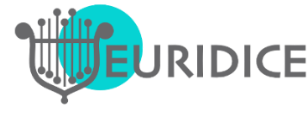
Self-standing modules: Citizenship and Democratic Governance of Digital Technology

Location: Online by
Zoom Iryna Denchyk: ID 627 285 9975 Passcode: Enter2024,
Zoom Borys Dziundziuk: ID596 121 5678 Passcode: J6ZF4eyL
Zoom Viacheslav Dziundziuk: ID 856 6620 2782 Passcode Ff9Hcbwb
in V.N. Karazin Kharkiv National University, Ukraine.
Date: October 11 – December 11, 2024, Schedule
Welcome to Citizenship and Democratic Governance of Digital Technology, 2.5 ECTS module that addresses the complex interplay between digital technologies and governance in the 21st century. This course offers you a comprehensive learning experience in understanding and shaping the future of our digital society.
Course theme
The field of Citizenship and Democratic Governance of Digital Technology addresses the challenges and opportunities presented by the rapid advancement of digital technologies in our increasingly interconnected world. This course is designed for approximately two-thirds of the world’s population who live in countries grappling with the governance implications of the digital revolution, while also equipping individuals with the knowledge and skills needed to navigate and contribute responsibly to the digital landscape.
Artificial Intelligence, blockchain, and other emerging technologies are currently at the center of attention as innovative digital solutions with claimed opportunities and benefits. Despite the high expectations, there are also many doubts and concerns about various developments as undesirable or dangerous. Heavy investments to boost these technologies are taking place in technologically advanced nations. However, what is beneficial for these countries is not necessarily applicable to others, and this consequently requires independent and critical investigation.
In addition to these global governance challenges, the course explores the role of digital citizenship, focusing on how individuals can engage with digital technology in ways that are ethical, respectful, and informed. This includes developing digital literacy, understanding online behavior, and considering the cultural and psychological impacts of digital technology on both personal and professional levels.
Accordingly, the course undertakes to investigate these matters in a global context, giving due attention to the varied geographic, economic, cultural, and socio-political contexts that influence both digital governance and individual digital citizenship.
Course structure (topics)
- Foundations of Digital Governance and Democracy.
- Digital Literacy and Citizenship.
- Online Behavior and Ethics.
- Cultural and Psychological Impacts of Digital Technology
- Blockchain and Digital Currencies: Implications for Governance.
- Artificial Intelligence in Public Policy and Decision-Making.
- Legal and Ethical Aspects of Digital Governance.
- E-Democracy and Civic Participation in the Digital Age.
Course setup
You will engage in group assignments focused on different aspects of digital governance and digital citizenship, seeking to answer a number of key research questions:
- (a) What is the current state of digital governance practices and digital citizenship? Our reference points are democratic principles, ethical considerations, and responsible digital behavior.
- (b) What are the foreseeable challenges, risks, and social impacts related to the governance of emerging digital technologies, and how can these be mitigated? How do these challenges impact individual digital citizens in different global contexts?
- (c) What are the implications for digital governance and digital citizenship in various contexts, in terms of policies, regulation, democratic participation, social entrepreneurship, education, and civic debate?
The course will provide introductions to key digital technologies, highlighting current governance challenges, opportunities, and the role of digital citizenship. Discussions will aim to address the question: “How can digital technologies be governed and utilized in a way that enhances democracy, protects rights, promotes inclusive development, and fosters responsible digital citizenship?”
Active “21st century” collaborative learning

During the course, you will work (online) in groups of 4-5 students on assignments related to the research questions surrounding both digital governance and digital citizenship. This open-ended and creative evidence-based work will follow an iterative “mixed-methods” approach, combining the gathering of empirical and policy data with an exploration of ethical and responsible digital behavior.
An individual essay assignment will include reviewing relevant documents and literature, organizing and analyzing conversations with policymakers, civil society representatives, and digital citizenship advocates, as well as conducting structured interviews with experts in digital governance and technology. You will also model and construct a (prototype) policy framework that incorporates the principles of both effective governance and responsible digital citizenship.
Produced essays will be critically peer-reviewed (also by your fellow students), allowing for iterative improvement. The refined essays will serve as a baseline for your group’s final project report, which will be presented and discussed at a plenary conference at the end of the course.
Assessment and deliveries
The academic content of this course is focused on real-world issues of a very much open-ended and interdisciplinary investigation nature, and its execution requires integration of a range of different academic skills and competencies, from analytical-theoretical to empirical-technical and collaborative-reflective practice ones. The deliveries and assessment criteria reflect this nature.
The deliveries, on which course assessment and success (2.5 ECTS credit points in total) is based, are assessed as follows:
- Class Participation (individual; 20%)
- Project report + presentation (group work; 40%)
- Critical Analysis Paper: Essay on digital governance, ethical implications, and democratic impact (individual; 40%)
Entry requirements for participation
This interdisciplinary course is open for selected master students of V.N. Karazin Kharkiv National University and partner universities, having bachelor-level knowledge or experience in a relevant field (Political Science, Social Science, Public Administration, Digital Economics, Law, Computer Science, Ethics, or related disciplines).
Form of tuition
This course is varied and will contain lectures, class discussions, a group project including case study analysis and policy development. It is set up as a practically oriented learning course, doing project work in a transdisciplinary way.
Estimated time budget
This is an intensive 10-week course of 2.5 ECTS. It requires attendance of all lectures and workshop sessions. In addition, you will do group work in your own time.
Learning Outcomes (with Dublin Descriptors):
At the end of the course, students will:
- Be familiar with the various aspects and implications of digital governance and digital citizenship, understanding how they affect democratic processes, citizen engagement, and responsible online behavior (Knowledge and understanding).
- Have an understanding of technologies, methodologies, and social dimensions involved in the design and implementation of digital governance policies and digital citizenship practices, particularly in diverse global contexts (Applying knowledge and understanding).
- Be able to understand and balance the trade-offs between technological opportunities, democratic principles, ethical considerations, and the responsibilities of digital citizenship in digital governance (Making judgments, Investigative skills, Critical Thinking).
- Be able to write a scientific report about a major aspect of the course theme with a group of students, integrating concepts from both digital governance and digital citizenship (Communicative and Collaborative skills).
- Be trained to (i) explore the problem- and solution space in an open-ended, culturally diverse governance environment, (ii) identify and address a set of relevant democratic, ethical, and digital citizenship challenges, and (iii) promote responsible digital engagement and ethical behavior in various contexts (“Soft” Learning skills, Creative Problem-solving).
The Louis framework is used in EURIDICE education to strengthen the general – higher order – academic and personal learning outcomes. It is based on the AAC&U-Value approach and adopted/adapted for higher education for societal impact by the Aurora Universities Alliance.
- Critical thinking
- Ethical reasoning
- Global learning
- Civic engagement
Lecturing team
- Dr. Olena Mykolenko (General course manager): olenamykolenko@karazin.ua
- Prof. Dr. Viacheslav Dziundziuk, Head of the Department of Public Policy, specialist in public administration and public policy, V.N. Karazin Kharkiv National University.
- Dr. Borys Dziundziuk, Lecturer at the Department of Law, National Security and European Integration, specialist in digital governance, V.N. Karazin Kharkiv National University.
- Iryna Denchyk, Lecturer of the Department of Management, Business and Professional Communications, specialist in digital economy, V. N. Karazin Kharkiv National University.
The virtual classroom
We will use a virtual classroom, available at Zoom.
Creative Commons
All materials in this course are created by Viacheslav Dziundziuk, Borys Dziundziuk, and Iryna Denchyk.
















Університет у соціальних мережах: